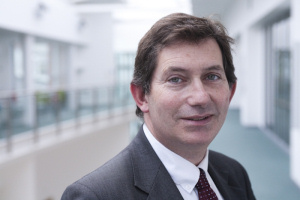Success for Manchester’s Academic Health Science Centre bid
29 Nov 2013
Manchester’s aim to become a leading international centre for turning innovative research into improved health for people locally and globally has received a major boost.

The city’s Academic Health Science Centre (MAHSC), a partnership between The University of Manchester and six leading NHS organisations, has been named as one of only six elite accredited partnerships in the country by the Department of Health, and the only one outside the South-East of England.
MAHSC brings together NHS and University staff across six key areas of health: cancer; cardiovascular health; human development; inflammation and repair; mental health and population health.
“Our agenda is ambitious: to transform the health of people in Manchester, to have a global impact through our discoveries and their application and to contribute to economic development in Manchester and the North of England,” said Professor Ian Jacobs, MAHSC Director and Vice President and Dean, Faculty of Medical and Human Sciences, The University of Manchester.
“The MAHSC partners, who employ over 36,000 staff, have already helped to transform people's lives by developing a range of new treatments and care pathways. These include for example, identifying women at higher risk of breast cancer, improving care for children with leukaemia, genetic disorders and severe allergies, delivering more effective care to stroke patients, finding genetic causes for heart failure and speeding up diagnosis of dementia.
"In awarding the designation, the Department of Health has recognised the outstanding level of collaboration between MAHSC colleagues, and the quality of the science, translational medicine and education that underpins everything we do. It’s a tremendous accolade to be one of the elite group of AHSCs, and the MAHSC team is determined to continue delivering transformational change to health and care for people across Manchester and beyond during the next five years.”
Academic Health Science Centre (AHSC) status, which is awarded for a five-year period, recognises excellence across world-class research, health education, patient care and economic development. AHSCs are tasked with improving health and healthcare delivery, including increased translation of discoveries from basic science into benefits for patients. They also have the potential to drive economic growth in their local communities through research partnerships with life science companies.
Added Sir Howard Bernstein, Chair of MAHSC and Chief Executive of Manchester City Council: "The unique way in which Manchester brings together clinical and academic experts in teams led by hospital chief executives is tremendously powerful. It's an outstanding example of the innovative way in which our city connects health and wellbeing. Manchester is well on track to becoming one of the leading biomedical centres in Europe, Well done to Ian Jacobs and the team of many thousands of staff who have contributed to this latest outstanding success."
Speaking on behalf of the NHS partners in MAHSC, Mike Deegan, Chief Executive of Central Manchester University Hospitals NHS Foundation Trust, commented: “This is excellent news for all the people in our local communities, and the wider population, who will benefit from access to the latest breakthroughs in diagnosis, treatment and care pioneered here in Manchester. MAHSC’s world-class research is providing innovative solutions to changing healthcare needs, and together we can deliver the health and economic benefits that will have a transformational impact on many lives.”
Professor Dame Nancy Rothwell, President and Vice-Chancellor of The University of Manchester added: “Congratulations to everyone who has contributed to this outstanding achievement. I’m delighted that the strength and importance of our partnership, and its ability to deliver, have been recognised by the Department of Health.”
Ends
